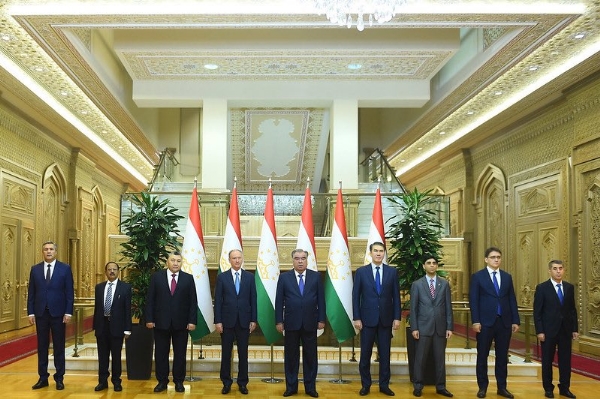Pakistan, other members of SCO agree to cooperate in fight against terrorism
24 Jun 2021 10:37:57
Dushanbe (Tajikistan), June 24: Pakistan National Security Advisor Moeed Yusuf joined NSAs of the Shanghai Cooperation Organisation (SCO) member countries including India where they agreed to cooperate in the joint fight against the threats - international terrorism, extremism, separatism and religious radicalism, a statement issued by host Tajikistan stated Wednesday. Indian NSA Ajit Doval was also one of the participants of the meeting.

The official statement, issued in Tajik, said special attention was given to the "current military and political situation in Afghanistan” and the risk of "escalation". It said the NSAs met Tajikistan’s President Emomali Rahmon. This was the 16th meeting of the Secretaries of the Security Councils of the Shanghai Cooperation Organisation.
Also Read: NSA Ajit Doval to commission indegenously designed ICGS Sajag
Besides Doval and Yusuf, the meeting was attended by Asset Issekeshev of Kazakhstan, Marat Imankulov of the Kyrgyz Republic, Nikolai Patrushev of Russia, Nasrullo Mahmudzoda of Tajikistan, Bobur Usmanov of Uzbekistan and RATS Director Jumakhon Giyosov. There was no representative from China, according to the Tajik statement, nor was he seen in the group photo with Rahmon.
It was also stressed that the regional anti-terrorism structure of the SCO can play an important role in ensuring regional security and strengthening ties between member states in combating threats and challenges of the modern world.
Also Read: Why US suddenly agreed to send 'urgently required' raw material soon after Ajit Doval called?
Moeed Yusuf had earlier said that there is no possibility of a bilateral meeting with his Indian counterpart on the sidelines of the SCO meet. Notably, Last year in September, Ajit Doval had stormed out of the SCO's virtual meeting of national security advisors after Pakistan showed a "fictitious" map violating the agenda of the gathering. However, in recent months, Pakistani political and army leadership seems to have toned down rhetoric against India.
Pakistan Army Chief General Qamar Javed Bajwa said in April that a stable relationship between India and Pakistan is key to unlocking the potential of South and Central Asia by ensuring connectivity. In February, India and Pakistan agreed to strictly observe the 2003 ceasefire agreement.
